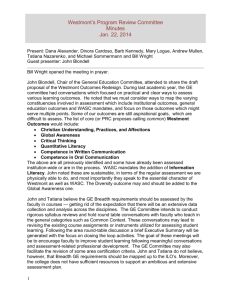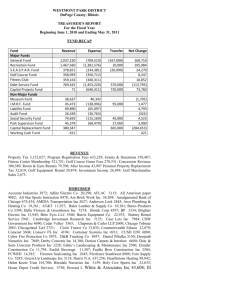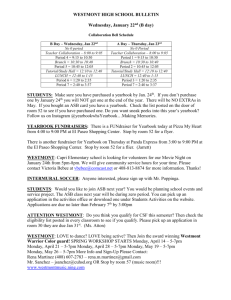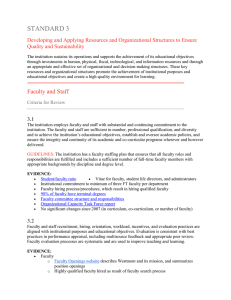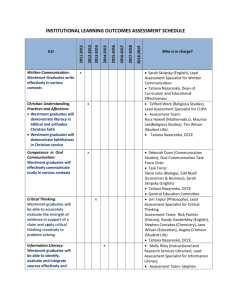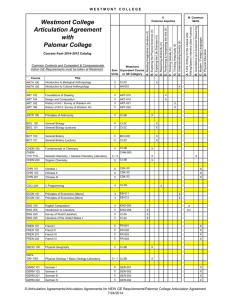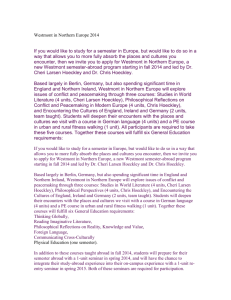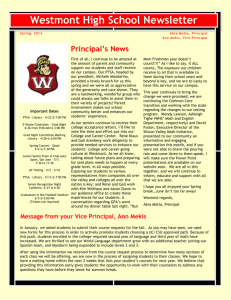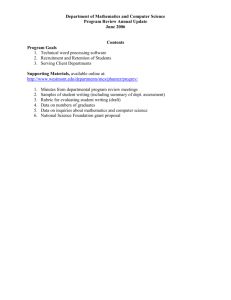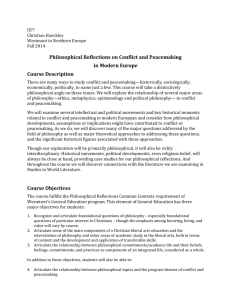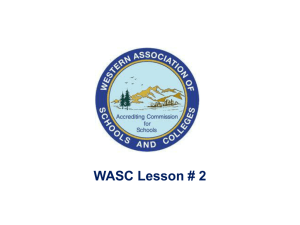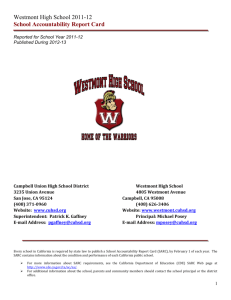Assessment Redesign
advertisement
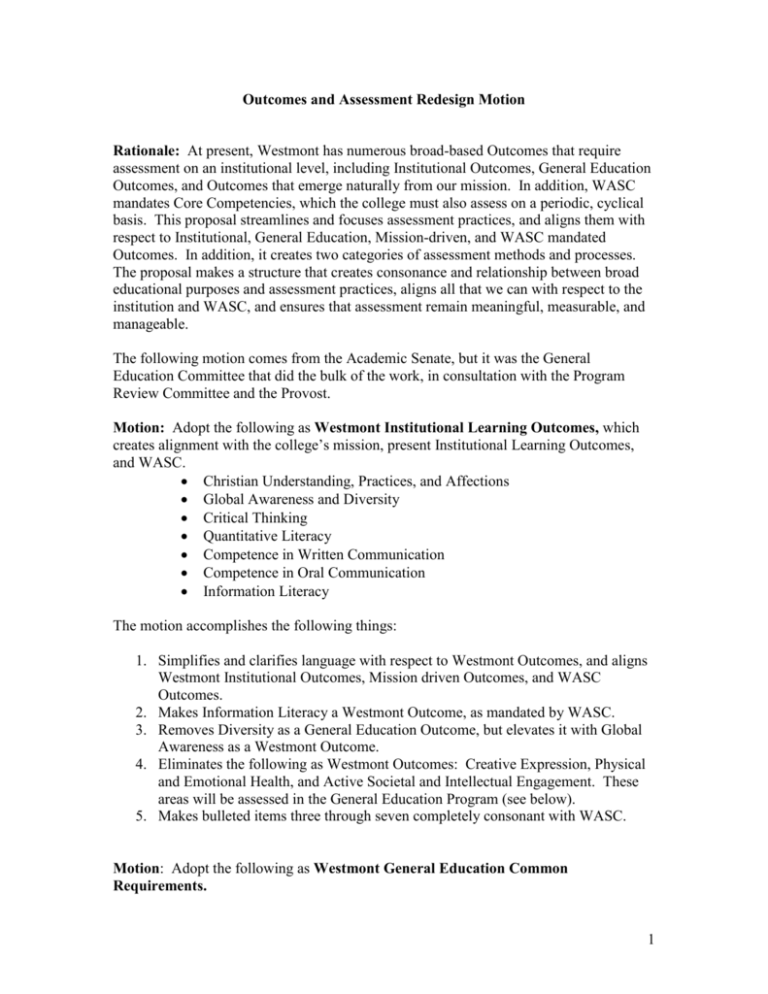
Outcomes and Assessment Redesign Motion Rationale: At present, Westmont has numerous broad-based Outcomes that require assessment on an institutional level, including Institutional Outcomes, General Education Outcomes, and Outcomes that emerge naturally from our mission. In addition, WASC mandates Core Competencies, which the college must also assess on a periodic, cyclical basis. This proposal streamlines and focuses assessment practices, and aligns them with respect to Institutional, General Education, Mission-driven, and WASC mandated Outcomes. In addition, it creates two categories of assessment methods and processes. The proposal makes a structure that creates consonance and relationship between broad educational purposes and assessment practices, aligns all that we can with respect to the institution and WASC, and ensures that assessment remain meaningful, measurable, and manageable. The following motion comes from the Academic Senate, but it was the General Education Committee that did the bulk of the work, in consultation with the Program Review Committee and the Provost. Motion: Adopt the following as Westmont Institutional Learning Outcomes, which creates alignment with the college’s mission, present Institutional Learning Outcomes, and WASC. Christian Understanding, Practices, and Affections Global Awareness and Diversity Critical Thinking Quantitative Literacy Competence in Written Communication Competence in Oral Communication Information Literacy The motion accomplishes the following things: 1. Simplifies and clarifies language with respect to Westmont Outcomes, and aligns Westmont Institutional Outcomes, Mission driven Outcomes, and WASC Outcomes. 2. Makes Information Literacy a Westmont Outcome, as mandated by WASC. 3. Removes Diversity as a General Education Outcome, but elevates it with Global Awareness as a Westmont Outcome. 4. Eliminates the following as Westmont Outcomes: Creative Expression, Physical and Emotional Health, and Active Societal and Intellectual Engagement. These areas will be assessed in the General Education Program (see below). 5. Makes bulleted items three through seven completely consonant with WASC. Motion: Adopt the following as Westmont General Education Common Requirements. 1 Reading Imaginative Literature Exploring Physical Sciences Exploring Life Sciences Performing and Interpreting the Arts Reasoning Abstractly Thinking Historically Understanding Society Modern/Foreign Languages Physical Education Integrating the Major Discipline/Research/Productions and Presentations Serving Society/Enacting Justice or Communicating Cross Culturally The motion accomplishes the following things: 1. Clarifies particular areas of the General Education program that are to be assessed in a periodic, intentional manner. 2. Previous Westmont Institutional Outcomes, Creative Expression, Physical and Emotional Health, and Active and Societal and Intellectual Engagement will be assessed on the General Education level in Performing and Interpreting the Arts, Physical Education, and Serving Society/Enacting Justice or Communicating Cross Culturally, respectively. 3. Makes two tiers of Westmont assessment practices possible (see below) Assessment Categories Westmont will use two types of assessment practices to assess Institutional and General Education Outcomes and Requirements, respectively. Tier One: Westmont Institutional Outcomes will use intensive assessment practices in areas most aligned with the breadth of the Westmont curriculum and mission. (The practices and methods will be similar to recent CUPA, Written Communication, and Oral Communication assessment work.) The Dean for Educational Effectiveness, the Assessment team, and the Program Review Committee will share responsibility for assessment work in this area. Tier Two: Westmont General Education Requirements will use modest assessment that evaluates the aspirational goals of the Westmont General Education program. Though the exact assessment practices are in process, this kind of assessment will be performed by small faculty cohorts, and culminate in executive summaries for the particular General Education area under review. This tier will use a 6-year cycle, and handle one GE requirement per semester. The General Education Committee will be responsible for assessment work in this area. 2
